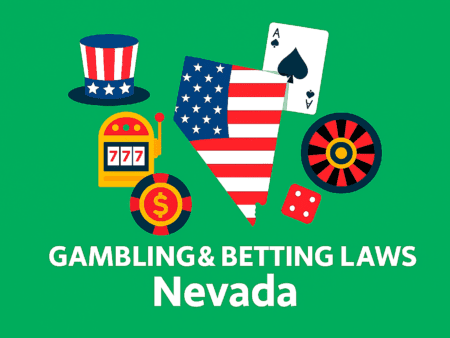Gambling laws in the United States are governed primarily at the state level rather than by the federal government. Each state chooses whether to allow land-based casinos, mobile or online casinos (iGaming), and sports betting via apps or physical locations. So there are multiple Casino apps that accept players from the US. But they may vary from State to State. Let’s take a look. Four main types of gambling are typically regulated:
- Land-based commercial or tribal casinos
- Online casinos and poker games
- Sports betting (retail and mobile)
- Lotteries and charitable gaming
Native American tribes also operate casinos under the Indian Gaming Regulatory Act (IGRA), which adds another layer of regulation and permits tribal-land gaming in many states. Because of this, the legal situation varies greatly between states.

In which U.S. states is gambling fully legal (casinos + online + sports)?
These states permit a broad range of regulated gambling options: land-based casinos, online casinos or poker, and mobile/retail sports betting.
- Nevada – A long-time leader. Commercial casinos everywhere, sports betting legal, and online poker allowed.
- New Jersey – Licensed online casinos, mobile sports betting and retail casinos are all legal.
- Pennsylvania – Retail casinos, online casino games and mobile sports wagering are legal.
- Michigan – Permits both online casinos and sports betting, along with commercial casinos.
- Connecticut – Through tribal compacts and state licences, allows online casinos and mobile sports betting.
- Delaware – One of the earliest for online casino games; retail casinos and sports betting legal.
- West Virginia – Commercial casinos, online casino licences and mobile/retail sports wagering.
- Rhode Island – Has real-money online casino games, retail casinos and mobile sports betting.
These states represent the most open gambling markets in the U.S. as of 2025.
Which states have partial gambling legalisation (some forms allowed, others restricted)?
In these states some forms of gambling are legal (e.g., sports betting, retail casinos) but other forms (especially online casinos) remain restricted or banned.
- New York – Mobile and retail sports betting legal; commercial casinos exist; online casino games remain prohibited.
- Illinois – Land-based casinos and sports betting legal; online casino gaming not yet authorised.
- Indiana – Casinos and mobile sports betting legal; full online casino gaming not yet approved.
- Colorado – Casinos and mobile sports betting legal; online casino (slots/roulette) still not fully legal.
- Louisiana – Commercial casinos and racinos legal; sports betting allowed in parishes; online casinos not permitted.
- Mississippi – Retail casinos and some on-property mobile sports betting legal; remote online casinos banned.
- North Carolina – Tribal casinos and mobile sports betting legal; broad commercial online casino games not authorised.
- Florida – Tribal casinos operate; sports betting legal via tribal compact; online casinos not widely approved.
Such states allow gambling, but the full spectrum of options is not yet open or regulated.
Which states mostly prohibit gambling (only minimal or no forms allowed)?
These states either ban most forms of gambling or allow only limited exceptions (like state lottery or charitable gaming).
- Utah – Virtually no legal gambling: no casinos, no sports betting, no mobile or online casino games.
- Hawaii – Also bans nearly all gambling, including commercial casinos and sportsbooks; only very limited gaming under state law.
- Georgia – Allows state lottery and some charitable gaming; no commercial casinos or online casinos, and most sports betting remains illegal.
- South Carolina – Lottery and charitable gaming permitted; casinos and online gaming largely not authorised.
- Alaska – Limited tribal gaming may exist; commercial casinos and mobile sportsbooks remain banned.
- Texas – While legislative efforts exist, regulated commercial casinos, full online gambling and mobile sports betting remain prohibited as of 2025.
For residents and operators in these states, gambling choices are very limited.
What is the status of online gambling and iGaming across states?
Online casino games (iGaming) and mobile sports betting have distinct legal pathways, which means states often legalise one but not the other. Only a small number of states allow licensed online casino games (slots, table games) as of 2025. These include New Jersey, Delaware, Michigan, Connecticut, West Virginia, Rhode Island, and Pennsylvania. Mobile and online sports betting is legal in many more states — over 30 states allow it in some form. This creates a “patchwork” market: you might play online casino games legally in one state, but only sports bets (not casino games) in another. Because online iGaming has higher social and regulatory resistance, many states adopt sports betting first and hold off on full online casinos.
How do tribal casinos affect state gambling laws?
Tribal gaming — casinos operated by Native American tribes under state compacts — plays a key role in U.S. gambling regulation. Many states without large commercial casino industries allow tribal casinos instead. Tribal casinos often operate under different rules than commercial casinos, adding complexity. In some states, tribal operators also partner for online or mobile gaming expansions. When evaluating a state’s gambling legal status, check whether tribal casinos are included and whether remote/online operations via tribal compacts are permitted. Tribal gaming is a critical factor in the overall gambling legal landscape. Bovada Casino is an example of of a Tribe-operated casino.
What are the future trends and regulation developments in U.S. gambling?
The U.S. gambling market continues evolving fast, and several trends are shaping the next phase. Many states are considering or actively working to legalise full online casinos in addition to sports betting. Taxation is rising: states are using casino and sports betting revenue to address budget gaps and fund problem-gambling programs. Regulation is tightening: more states require stronger consumer protections, age verification, deposit limits, and advertising regulation. Because sports betting is easier to legalise politically than full casinos, many states follow a step-by-step path. For analysts, operators, and content strategists, it’s important to monitor which states are moving from partial to full legalisation and how legislative sessions evolve.
Has gambling been legalised uniformly across the U.S.?
No. The picture in 2025 remains a state-by-state mosaic. Some states, like Nevada, New Jersey and Michigan, offer robust retail casinos, online games and mobile sports betting. Others allow only limited forms of gambling or still ban most wagering activities. For players, regulators and businesses alike, it is essential to check each state’s specific laws before acting. The broad trend, however, is one of expansion and increasing regulation, with many state governments embracing online and mobile gambling under careful frameworks.


